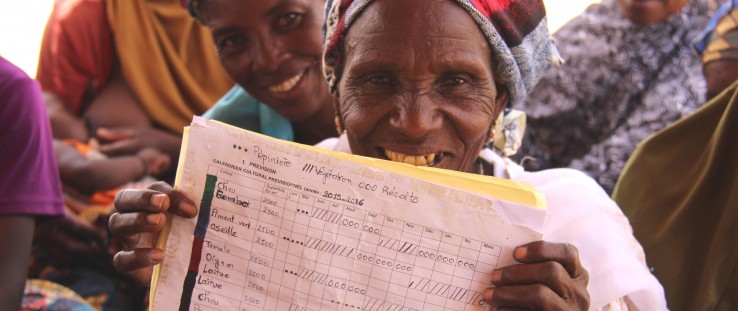 A member of the Albarka women’s group in Iguéfane village holds up a ledger of fruit and vegetable sales from the oasis garden.
John Torres, NCBA CLUSA
A member of the Albarka women’s group in Iguéfane village holds up a ledger of fruit and vegetable sales from the oasis garden.
John Torres, NCBA CLUSA
 A member of the Albarka women’s group in Iguéfane village holds up a ledger of fruit and vegetable sales from the oasis garden.
John Torres, NCBA CLUSA
A member of the Albarka women’s group in Iguéfane village holds up a ledger of fruit and vegetable sales from the oasis garden.
John Torres, NCBA CLUSA
Speeches Shim
In Hausa and Zarma, two of the main languages of Niger, albarka means “blessed.”
So a group of 54 women who tend an irrigated community garden, or oasis garden, in Iguéfane, Tillaberi region, named themselves the Albarka women’s group. Because the crops are consumed at home and sold at the market, the garden has allowed many of the women to increase their income and improve the health of their families. They feel blessed.
Niger is a part of the Sahel region, an arid stretch of land in Africa that spans over 3,300 miles and sits just south of the Sahara Desert. It is an area directly impacted by climate change and is a prime location for environmental stresses like the desertification of farmland. Communities in these agriculture and pastoral areas are chronically vulnerable to shocks such as drought and crop failure, and often rely on humanitarian assistance.
Through USAID’s Resilience in the Sahel Enhanced (RISE) initiative, the U.S. Government is working to strengthen the vulnerable populations in these areas so they can mitigate, adapt to and recover from shocks and stresses without emergency assistance, and ultimately achieve sustainable economic success.
In Iguéfane, USAID, through its implementing partner NCBA CLUSA, is working to promote sustainable livelihoods, strengthen governance, and improve health and nutrition through the Resilience and Economic Growth in the Sahel-Enhanced Resilience (REGIS-ER) project, part of the RISE initiative. Integrating nutrition and livelihoods training can help groups determine what sort of vegetables to plant in commercial gardens to both improve income and address nutrition needs. Strengthened governance of local groups is important for disseminating nutrition and livelihood training. It is the integration of these three approaches the Agency hopes will strengthen communities in Niger and Burkina Faso so they can better respond to climatic and agricultural shocks.
Members of the Albarka women’s group are trailblazers in their community, showing how integrated livelihoods, governance and health investments can multiply dividends and unlock a path to prosperity.
Women Leading
Rabi Ousmane grows a variety of crops in the oasis garden and uses the profits from the sale of these crops to provide more nutritious food to her family. Djamilla Modi took advantage of a small loan to practice animal fattening, using the proceeds from her sheep sales to pay school fees for her children. And Hassiatou Abdou is working to improve the health of her family through lessons learned in REGIS-ER-sponsored mother-to-mother groups.
The oasis garden in Iguéfane was originally started in 2012 and, since that time, organizers have obtained a land deed, installed a solar pump for the garden well and started a tree nursery.
Before she began working in the oasis garden, Ousmane used to weave tangaras, or straw mats, to sell in the market, but this brought in very little income. She often struggled to meet the needs of her family. Now she grows moringa and vegetables in the oasis garden. Moringa is a tree with leaves that are high in nutrients and can be mixed with rice and peanut butter, made into a juice or incorporated into other local foods. Ousmane sells some of her moringa harvest, and takes some home to feed to her family.
“Now we can take care of our own needs and we can even take care of others’ needs,” Ousmane said.
Recently, she sold moringa from the garden worth 5,500 West African francs (CFA), or about $9.40—roughly equivalent to a rural household’s income in one month. She gave 10 percent back to the garden fund to support reinvestment, and used the rest of her profits to feed her family. “With the profits, I buy sugar, milk, oil, peanut butter and onions. REGIS-ER brought us change. Everyone has moringa. We can eat; we can meet our needs,” Ousmane explained.
The oasis garden was built using bio-reclamation of degraded lands, a way of gardening and farming that works proactively to secure the land against droughts and floods. The topsoil in this garden is protected by rock terraces, which slow rainwater and allow it to settle rather than to wash away topsoil.
As the land became more fertile, the women moved from planting only moringa to planting a wide array of nutrient-rich fruits and vegetables. The garden is now 1.2 hectares and the women plant moringa, peppers, lettuce, cabbage, carrots, eggplant, okra, onions, tomatoes and melon throughout the year.
With a portion of the profits from the oasis garden, the women’s group supports income-generating activities for Iguéfane community members. Reinvesting the oasis garden profits not only provides the community with access to more local produce, but helps the women become more economically resilient as well. This is often done through small loans.
Fattening the Bottom Line
Djamilla Modi, a member of the Albarka women’s group, received one such loan for 100,000 CFA, or approximately $170. Modi used part of these funds to buy a sheep, which she fattened for four months and resold for 125,000 CFA ($215). With time still left to pay back the loan, she bought two more sheep, one to keep for herself and the other to fatten and sell again. By the time the loan was due, she had nearly doubled the value of the loan.
Modi will use the profits from the loan to pay for school fees and buy supplies for her three children. In the zone in Niger where this project is implemented, credit and animal fattening cycles provide employment and revenues for 329 people, including 297 women.
The Albarka women’s group is also working to improve nutrition and health among their neighbors in Iguéfane. USAID supports this effort by organizing mother-to-mother groups where pregnant women and lactating mothers can discuss solutions to shared issues.
Hassiatou Abdou learned about the mother-to-mother group from a friend at the oasis garden. At one group meeting, Abdou discovered that contaminated water can cause diarrhea, which leads to dehydration and often serious illness or death in infants and children. One way to combat this is exclusively breastfeeding for six months.
“Everyone used to give their babies water along with breast milk before we did this training,” said Abdou. Part of the new mother curriculum also discussed proper sanitation, such as washing hands with soap, especially before handling food.
“By learning new techniques to improve their health and that of their families, the women of Iguéfane are working to build the resilience of their community,” said USAID/Senegal Mission Director Susan Fine.
On a recent visit to Iguéfane, Fine and Bill Stringfellow, chief of party for REGIS-ER, spoke with some members of the Albarka women’s group. When Fine commented on how healthy the children of the village looked, one woman proudly proclaimed, “Our children look like the children in Niamey [the capital].”
As Modi, Ousmane and Abdou know, one garden can be the beginning of so much more.
Sarah Crozier is with NCBA CLUSA.
A Collective, Community Effort in Building Resilience
By Nina Rosenberg
This September in Darey, a village 130 kilometers from Niamey, the capital city of Niger, villagers gathered under a community hangar. In 2012, Darey was one of many villages devastated by drought and hunger, and its families have struggled to recover.
Today, however, despite the sweltering heat, most of the villagers who have gathered here are smiling. They are discussing the current agricultural season, in which rains have been good and the harvest looks hopeful. This sense of hope is about more than the harvest; it is about the recovery of land that had long been lost to them, and that now holds the promise of a better future.
Thanks to a resilience project funded by USAID’s Office of Food for Peace, these villagers are now able to plant and harvest nutritious crops on land that had been degraded and unusable for years.
Through a unique collaboration between the U.N. World Food Program and the U.N. Food and Agriculture Organization, the project is tackling entire watersheds—from the tops of plateaus, to the sides of cliffs, down to the ground below—with heavy equipment, such as rippers and heavy load trucks, that breaks into soil that had been compacted for decades. Once this “hard pan” is broken, food-for-work projects allow people who live in these villages to restore the land themselves and prepare it for planting.
One of these villagers is Oumou Mounkaila, a 45-year-old mother of nine, who planted millet, maize and groundnuts. The road to her apparent prosperity, however, was long and full of formidable trials.
Before the project, Mounkaila had dry, rocky land that was unusable for farming. To feed her family, she had to leave Darey for surrounding villages to pound millet for other people. She also plaited hair for other women. But the income she earned was insufficient, and most days she returned home without enough money to feed her children.
“One day there was nothing at home. I’d been around and found nothing,” explained Mounkaila. Her children often did not go school because they were too hungry. “Throughout the day we drank only water. I kept crying. I wondered why life had to be so cruel with me,” she added.
Oumou’s friend, Gambi Issoufou, a 37-year-old mother of six, also benefited from the project. “I always [would] go around to pick wild leaves to boil and give to [my] children to eat—they are often sick,” she said. She spent seven months without hearing from her husband, who had left to find seasonal work in Nigeria.
Like Mounkaila and others in the village, Issoufou’s family has rocky land that is unable to retain water for cultivation.
Mounkaila and Issoufou both took part in the work of community land recovery, using techniques they learned through the project. With the rest of the community, they helped build dykes and artificial rock formations, and deployed agricultural techniques such as half-moons and zai—a local method of digging small holes—to enable the land to retain water more and preserve organic material necessary to grow crops. In exchange for work, they received much-needed food rations from the World Food Program so they could feed their families.
When the land recovery process was finished, Mounkaila had cultivable land. “I have sown. My plants are growing well and I’m glad. It’s nice to know that during this harvest I raise my own crops,” she said.
Participants receive vouchers for seeds, advice from technical experts on crop monitoring and training on other essential family practices, including breast feeding and hygiene. To help make the project sustainable, participants are expected to pay back the vouchers they receive from the Food and Agriculture Organization with crops they harvest later in the season.
Mounkaila and Issoufou, along with many others in her community, are confident for the future. “There is a big change in my life. Now, my children eat three times a day. This has not happened for a long time,” said Issoufou.
Mounkaila added: “With this work I was able to make savings. I bought goats which will multiply. I can now send my children to school.”
She explained that women in the community feel more empowered. “We have a women’s cooperative where we put money aside to help anyone who will be in financial constraint,” she said. “If someone’s child is sick and she has no money to buy medicine, she can borrow money from the communal pot and repay later. We can also borrow money to strengthen our businesses.”

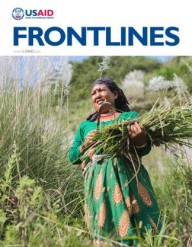

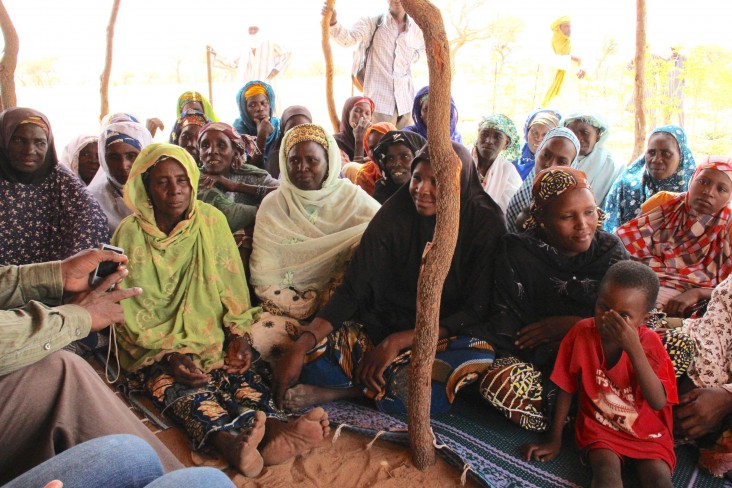
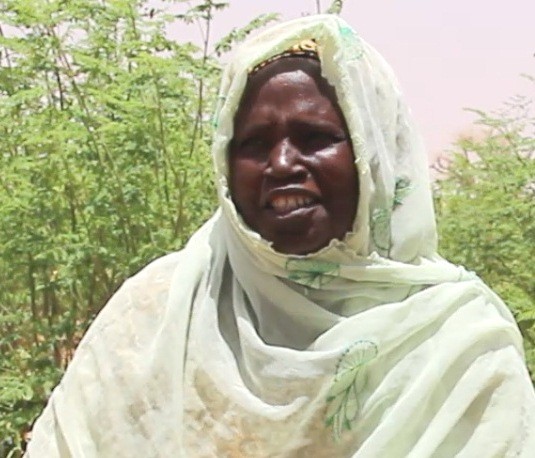
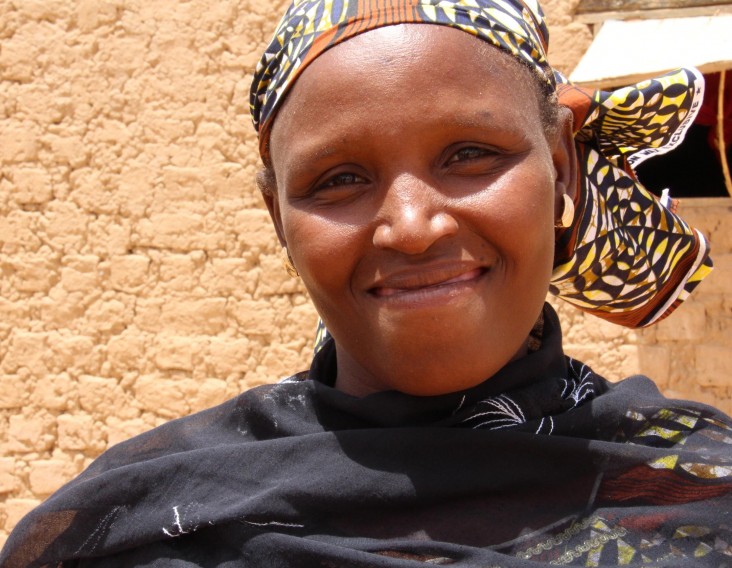
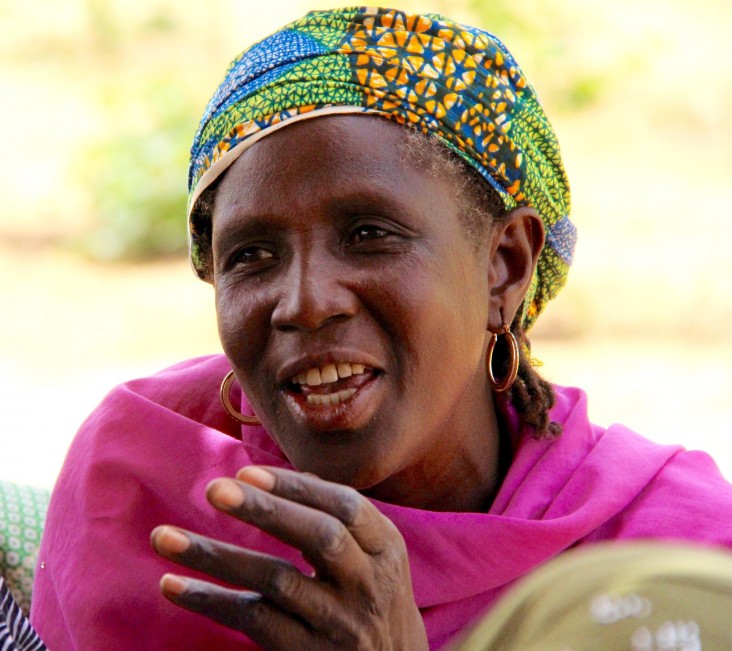
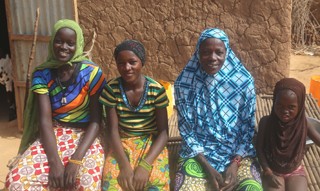
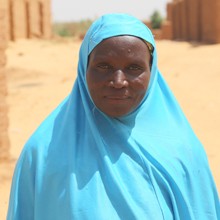
Comment
Make a general inquiry or suggest an improvement.